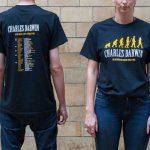lpetrich
Contributor
Now all the rest.
Eudicots
Monocots
Magnoliids
Magnoliophyta - Angiosperms
Eudicots
- Proteales - Macadamia tree
- Ranunculales - Poppy: poppy seed
- Rosids
- Saxifragales - Currant
- Vitales - Grape
- Fabids
- Malvids
- Asterids
- Caryophyllales
- Ericales
- Campanulids
- Lamiids
Monocots
- Alismatales - Taro
- Asparagales
- Asparagaceae - Asparagus
- Amaryllidaceae
- /Allium ampeloprasum/ - Leek
- /Allium cepa/ - Onion
- /Allium sativum/ - Garlic
- /Allium schoenoprasum/ - Chives
- Orchidaceae - Vanilla
- Commelinids
- Arecales
- /Phoenix dactylifera/ - Date palm
- /Cocos nucifera/ - Coconut palm
- Poales
- Bromeliaceae - Pineapple
- Poaceae - Grasses
- /Avena sativa/ - Oats
- /Hordeum vulgare/ - Barley
- /Oryza sativa/ - Rice
- /Secale cereale/ - Rye
- /Sorghum/ - Sorghum
- /Triticum/ - Wheat
- /Zea mays/ - Maize: American corn
- Zingiberales
- Cardamom
- /Zingiber officinale/ - Ginger
- /Curcuma longa/ - Turmeric
- Arecales
Magnoliids
- Laurales
- /Persea americana/ - Avocado tree
- /Laurus nobilis/ - Laurel shrub: bay leaf
- /Cinnamomum/ - Cinnamon tree
- Magnoliales - /Myristica fragrans/ Nutmeg
- Piperales - /Piper nigrum/ Black pepper
Magnoliophyta - Angiosperms
- Austrobaileyales - /Illicium verum/ Star anise
- Magnoliids
- Eudicots
- Monocots

